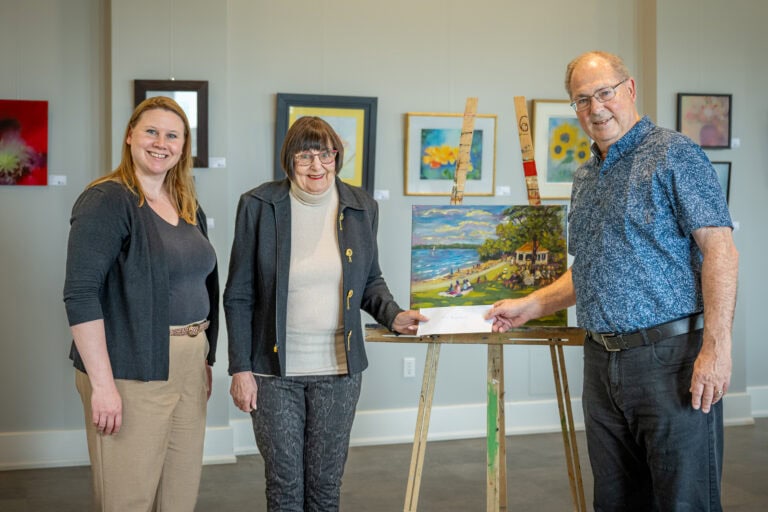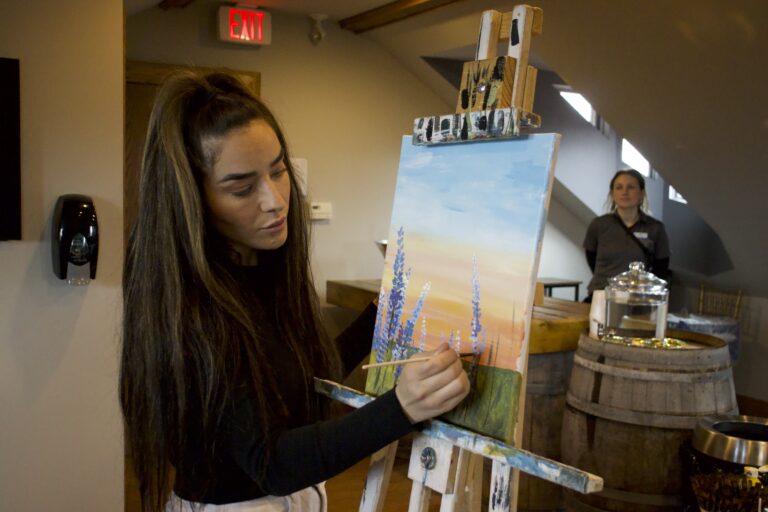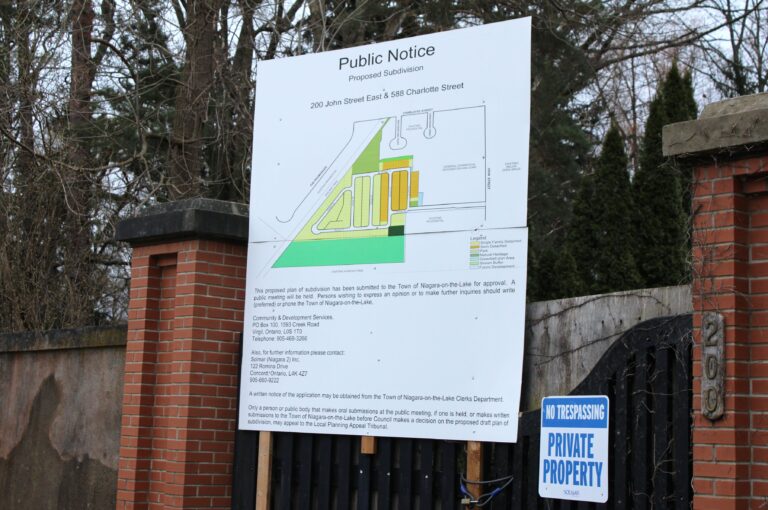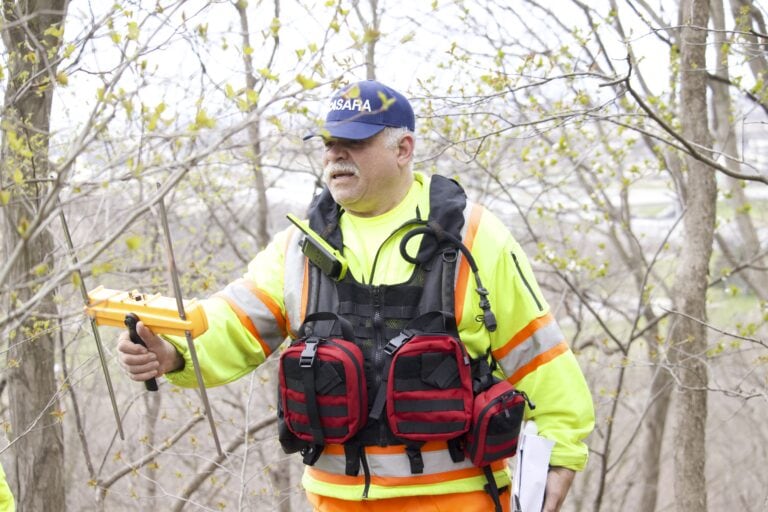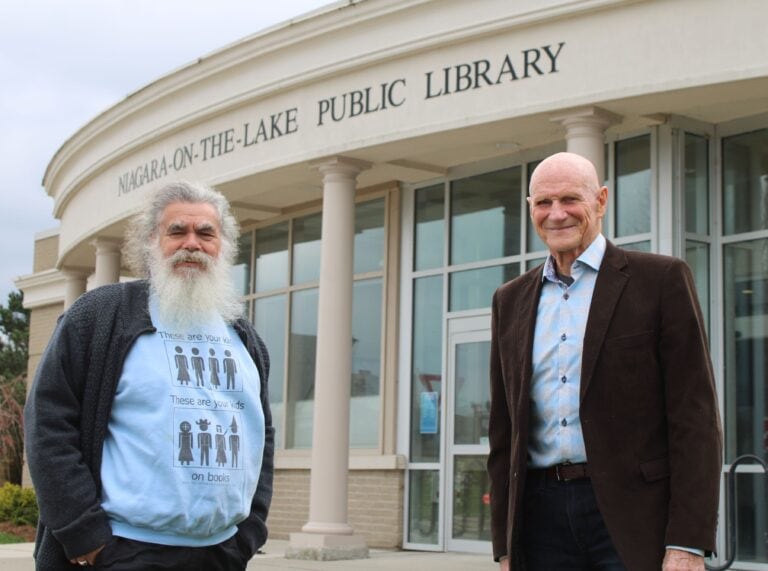Fatima Baig
Special to The Lake Report
Niagara-on-the-Lake's inclusivity committee says it has heard concerns from residents about racism, ageism and the lack of universal washrooms in town.
The committee has formed focus groups to follow up an online survey conducted earlier this year. Out of 173 survey respondents, 97.6 per cent indicated NOTL would benefit from more inclusion and diversity, the committee said.
According to the survey, 24 per cent of respondents said they feel unwelcome as customers or employees or have heard about or witnessed discrimination in NOTL businesses.
As well, committee members identified issues about tensions between newly arrived and long-term residents, “out-of-townism,” NIMBYism, lack of female representation on town advisory committees, and recognition and inclusion of the Indigenous community in NOTL. However, the inclusivity committee hasn’t received direct comments about these issues from residents, said co-chair Niki Walker.
“Discussions within the committee have been raised as a result of reading local newspapers, checking in on local Facebook groups, sitting on the region’s Coalition of Inclusive Municipalities committee, and our members’ direct and indirect personal experience,” said Walker.
The inclusivity committee also received a letter from resident Kaspar Pold about racist incidents at NOTL businesses.
“His concerns centered around what people can do or where they can go to address incidents of racism at local businesses and whether any inclusivity training has been offered to people working in the tourism sector,” said Walker.
Pold's points were raised to the Chamber of Commerce and will be discussed in focus groups, she said.
The inclusivity committee also held a Zoom session with employees of the Shaw Festival and was told about instances of racism and homophobia the staff members have experienced.
Participants in the survey were asked to describe any inclusivity issues they would like to be addressed.
One person responded: “It is particularly troubling to see the way field workers, Shaw’s artists, hotel workers and our other more diverse local workers are treated by some locals and how they assume they are not residents or are lesser as renters, despite directly driving the economy of the town with their work.”
The person, who said they are a member of the Shawl's board and equity task force, also cited “rampant” homophobia and transphobia, noting, “There is an urgent need to educate (especially older) residents about LGBTQ2+ issues.”
The NOTL survey results also highlighted concerns about marginalization and discriminatory treatment of farm workers and lack of accessibility for individuals who use mobile aid devices or are visually impaired.
Walker said the committee informed the town of one complaint about universal washrooms and was told the municipality is looking into converting two washrooms in the community centre into universal washrooms.
“The committee supports the creation/conversion of universal washrooms wherever feasible and has offered to assist in any way we can,” said Walker.
Much to the displeasure of many residents, systemic change in NOTL will not happen overnight, said Kiera Sangster, another member of the inclusivity committee.
“The concerns and feedback collected from our survey will be addressed with thoughtful care, education and respect for all,” she said.
Lack of women's representation on town advisory committees is also an issue, according to Coun. Sandra O’Connor.
A 2020 report published by a Brock University think tank showed Niagara-on-the-Lake doesn’t have enough women on town committees. That prompted O’Connor to ask council to push for more female representation. Councillors passed a motion to that effect in March.
One way to tackle this issue is to encourage more women to apply for committee positions, O'Connor said.
When the town puts out the call seeking volunteers for committees, it could make it clear “we would like to encourage diversity on this committee so we are asking people of diverse backgrounds to apply,” she said.
The inclusivity committee is also working on the municipality's Join the Conversation page so residents can engage and bring up any problems they encounter and the committee can offer suggestions.
“One thing we want to ensure is that the committee is taking its direction from the community itself. We want to hear from and amplify voices rather than creating the conversation,” said Walker.
At the moment, you do not need to self-identify as a particular gender or minority group to be on a committee. That raises the question about how the committee will make sure membership is more diverse if people don't need to self-identify.
O’Connor said this requires changes to forms or procedures and consultation with the inclusivity committees.
“In the past, we have not asked for any identifiers. We have the opportunity to revisit the application to see if that's what needs to be done,” she said.
Walker said the inclusivity committee can offer advice and input to the council about policies or procedures.
“To that end, we are currently working on finalizing our input on employment and hiring policies, which we asked to review. Asking or requiring people to identify can be questionable from a legal standpoint,” she said.
Walker stated the committee includes many marginalized and racialized individuals but is also looking for feedback from other minorities in NOTL.
Other suggested improvements in the diversity and inclusivity survey results include educating residents, business owners and others about the importance of diversity and inclusion, improving accessibility for individuals in wheelchairs and those who are visually impaired, implementing more integrated transit such as regional bus service access to GO and Via Rail, increasing resources for young families and youth, and making council, staff and volunteer groups more diverse.



